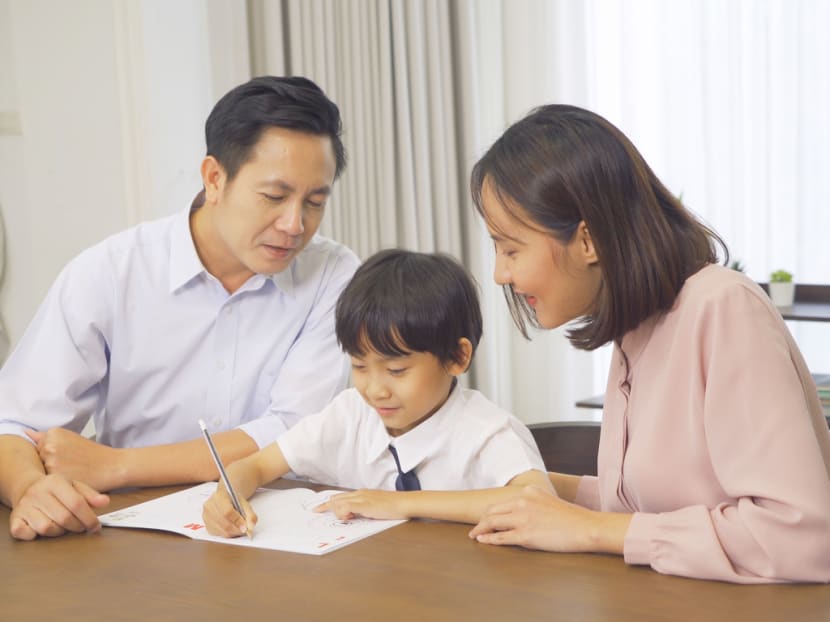Commentary: Want your children to be resilient? Don’t shield them from the messiness of everyday life
Parental practices directly influence emotional development in children – but it’s easier said than done when we instinctively want to shut down the messy emotions of our kids, says June Yong.

File photo. Parental practices can directly influence emotional development in children and adolescents.(Photo: iStock/tampatra)
SINGAPORE: Youth mental health is in the spotlight in Singapore, as more is known about the impact the pandemic has had on their well-being. An NUS study found one in three youths aged 11 to 18 has experienced sadness, anxiety and loneliness, while an IPS survey published in July said respondents aged 21 to 29 reported declining mental health.
To assess the state of mental health among young people in Singapore, the Institute of Mental Health (IMH) on Sep 27 announced it will conduct a nationwide study on individuals aged 15 to 35.
This is timely amid troubling news of teens getting into fights or threatening their teachers. While it might be a stretch to draw conclusions about the mental health of young people from one-off incidents, one still wonders whether more can be done to support young people’s emotional learning, beside the usual diet of academic subjects.
We all want our children to grow up happy, healthy and resilient amid the rising tide of mental health issues. But what exactly does it take?
Perhaps the answer lies in the development of emotional intelligence.
Originally proposed by Peter Salovey and John Mayer, and later popularised by Daniel Goleman, emotional intelligence is the ability to perceive, appraise and manage emotions. It has been positively associated with success in the workplace as well as life satisfaction and lower stress levels.
LISTEN - Heart of the Matter: Is the mental health care system in Singapore overwhelmed?
Our emotions not only help us understand ourselves and what we need, but are also essential in shoring up a youth’s social support – whether this comes from family, friends, or a neighbour or teacher.
PARENTAL PRACTICES AFFECT EMOTIONAL DEVELOPMENT
The good news is, parental practices can directly influence emotional development in children and adolescents.
Diana Baumrind, an American psychologist, identified three styles of parenting behaviours: Authoritative, authoritarian and permissive, while Stanford researchers Eleanor Maccoby and John Martin later added a fourth, neglectful. These parenting styles are commonly understood within a framework of parental control and warmth.
Adolescents who perceive their parents as authoritative tend to have better social skills and demonstrate higher levels of empathy. Authoritative parenting emphasises a high level of parental control that is combined with a high level of warmth.
Such parents enjoy a high level of emotional connectedness with their children, and also provide age-appropriate levels of autonomy, encouraging children to make their own choices according to their values and goals.
In contrast, permissive parenting has been associated with lower emotional intelligence outcomes. Research has suggested that permissive parenting limits the number of challenging emotional experiences for children and the extent to which parents directly facilitate emotional growth.
With three children at home, I often have to wear the hat of a referee in de-escalating sibling squabbles. But since the children were young, my husband and I have emphasised that all parties have a hand in conflict, so there’s no use pointing the finger and saying “so-and-so started it.”
Instead of figuring out who’s to blame, we focus on helping them draw out their emotions, asking questions like: “How did you feel when your brother did this?” Or “What do you think caused him to lash out like that?” We also teach them how to step away from a tense situation – to catch a breath so their problem-solving faculties can kick into gear.
OFFERING CHILDREN A SAFE SPACE
This is easier said than done, of course. When it comes to the messy and ill-articulated emotions of our children, we instinctively want to shut them down.
But authoritative parents would offer a safe space for children to express their feelings. By empathising with and supporting them, we are effectively co-regulating their emotions.
I remember helping my daughter with her Chinese homework when she was in Primary 4. Any task to do with Chinese was a significant hurdle for her, as it was her weakest subject. When it came to a difficult comprehension passage or writing a composition, things tended to go south quite quickly.
It begins with a sulk, progresses to full-on complaints about how difficult the task is, then often culminates in tears.
I’ve learnt the hard way that comments such as “You mean you don’t know this word?” are not helpful and can trigger an emotional avalanche. What does help is offering some gesture of emotional support; like saying “I can see this isn’t easy for you,” or just focusing on being a calm, comforting presence.
It can be disconcerting seeing our children frazzled by their homework. It takes practice (and lots of mistakes) to learn to sit with these uncomfortable emotions, so we must be gentle on ourselves too.
TENDING TO OURSELVES FIRST
Being consistently authoritative in our parenting can be a challenge – particularly when it comes to our “trigger points,” which for most of us, fall in the realm of academics.
In our heads we know it is good to allow our children some degree of autonomy – for example in deciding which subject to revise for the exams and how. But many of us struggle to let go and trust they will do it without us breathing down their necks.
And when they make mistakes, we start to question if we’ve done enough and regret not reining them in earlier. Such guilt, when mixed into the already complex project of parenting in the digital age, can further complicate matters and muddy our thinking.
In such situations, we need to first process our own emotions before we can effectively help our children cope with theirs. Just like the emergency procedures in an airplane, we have to apply first-aid to ourselves first, before tending to the needs of our young.
EMOTIONAL SKILLS ARE BEST LEARNT IN THE EVERYDAY
When junior makes a mistake, it’s often hard to swallow as we parents tend to take it personally. At times, we may even be tempted to place the blame on other people or factors, instead of helping our children bear the responsibility.
But if we take the proverbial bull by the horns, sit down with our children to help them understand their triggers and the tools they can reach for in future, imagine how much growth could take place as they connect the dots between their emotions and thoughts with their external behaviour.
As a therapist once told me, “Helping your child understand their feelings gives them the key to controlling their behaviour.”
So let’s get comfortable with talking about the messy emotions that we experience in our daily lives, instead of treating them like the elephant in the room.
June Yong is the Lead of Insights at Focus on the Family Singapore.











